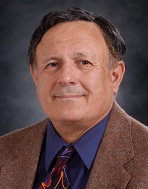
Plenary Lecture
Resilient Communication Networks with Imbedded Cybersecurity and Data Fusion

Professor Demetrios Kazakos
Texas Southern University
USA
E-mail: kazakosd@tsu.edu
Abstract: The development of secure, resilient and dependable communication networks is a major objective for both civilian and military systems. There are various types of threat that exist. We presently concentrate on one type of cyberthreat, based on cyberattacks, and we develop intelligent, software and statistically based approaches. In this talk, we discuss our advances in the use of intelligent and statistical methodology to model cyberattacks by viewing them as abrupt changes in traffic patterns. Such approaches have been very effective for some statistical models. Our approach is to use “ Decentralized Multisensor Change Detection” statistical methods. We consider a large network of sensors that monitor traffic at several locations. We are proceeding to advance the state of the art, using more complex statistical models, making them more sophisticated and flexible to respond to dynamically and aggressively changing forms of cyberthreats. There is a need to compress the data obtained at the sensors, thus the data fusion approach is necessary. The principle of data fusion is to develop strategies that will reduce the large volume of observation data into a smaller amount ,while preserving as well as possible the system’s ability to detect optimally the abrupt changes in traffic. In the present talk, we are discussing our progress in this area of Optimal Data Fusion. Our research is an element of the overall need to develop a general mathematical/statistical/probabilistic theory that models and encompasses several versions of this type of threat, towards a unified framework of secure and reliable communications and computing. In view of the increasingly distributed nature of computing, we believe that the analysis and study of secure distributed computing systems encompasses the need for secure communication networks, due to the increasing and inextricable linkage between communication networks and distributed computing.
Brief Biography of the Speaker: Dr Demetrios Kazakos received his Diploma in Electrical and Mechanical Engineering from the National Polytechnic University of Greece. He then started graduate his graduate studies in the United States. He received a Master of Arts degree in Electrical Engineering from Princeton University and a Doctor of Philosophy degree from the University of Southern California, specializing in Statistical Communication Theory. In 1980, he joined the Electrical Engineering Department of the University of Virginia,where he stayed until 1993. In 1992, he was elevated to the grade of Fellow of IEEE, for his research in two areas: Enhanced Algorithms for Multiuser Multiaccess Networks and Statistical Pattern Recognition. In 2009, he was elevated to the grade of IEEE Life Fellow. In 1993 he accepted the position of Head of the Electrical and Computer Engineering of the University of Southwestern Louisiana. At the same time he has always been a very active participant in IEEE conference organizing and editorial activities. He was Editor of the IEEE Transactions on Communications for 5 years, Technical Program Chair for two major IEEE Conferences, and member of the Technical Program Committee for several IEEE and other conferences. In 1983 he started a new company named HITEC, INC, which undertook several Research and Development projects in Information Technology, funded by the U.S. Department of Defense and the European Community. In 2001, he undertook the position of Professor and Chair of the Electrical Engineering and Computer Science Department at the University of Toledo. In 2004, he moved to the University of Idaho, as Professor and Chair of the Electrical and Computer Engineering Department. From 2006 to 2008, he was Dean of the College of Science and Technology at Texas Southern University. From September 2009 to September 2011, he was at the National Science Foundation in the position of Program Director responsible for the Program: “Centers of Research Excellence in Science and Technology”. Overall, he has published about 165 refereed journal papers, book chapters and conference proceeding papers, as well as two books.